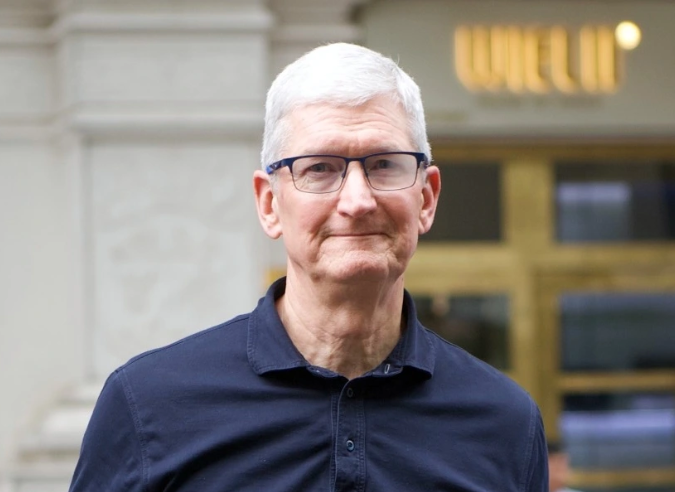Tim Cook’s pay is frequently the subject of intense analysis, not just because to the figures but also to what they represent. The weight of leading Apple, a business that has continuously transformed technology, customer behavior, and international markets, is reflected in his salary. Cook’s yearly salary increased to $74.6 million in fiscal 2024, which was little less than the historic $99.4 million in 2022 but significantly more than the $63.2 million he received in 2023. After his voluntary pay cut a year earlier, which he made in response to pressure from shareholders, the raise was especially helpful in reviving investor confidence.
His 2024 earnings structure demonstrates ambition and balance. His base pay stayed at $3 million, which is remarkably similar to previous years, but he received $58.1 million in stock awards, which are closely linked to Apple’s stock performance. The company’s alignment of executive incentives with shareholder profitability is demonstrated by the $13.5 million in additional remuneration that increased the package’s overall worth. Despite heated disagreement, such sums may seem reasonable to a leader who set Apple’s $3 trillion valuation.
Tim Cook Salary – Career and Compensation Profile
| Name | Timothy Donald Cook |
|---|---|
| Born | November 1, 1960 (age 63) |
| Height | 6 ft 3 in (1.90 m) |
| Occupation | CEO of Apple Inc. |
| Annual Salary (2024) | $74.6 million |
| Breakdown | $3M base salary, $58.1M stock awards, $13.5M additional compensation |
| Net Worth | Estimated $1.9 billion (2024) |
| Years Active | 1982–present |
| Known For | Leading Apple after Steve Jobs, expanding Apple into services and AI |
| Spouse | Unmarried |
| Reference | Apple – SEC Filings |
Cook’s rise from humble roots in Alabama to the corner office in Cupertino is what makes his story so evident. He worked diligently for IBM for 12 years, developing a precision in supply chains that became his hallmark. After that, he worked for Compaq and Intelligent Electronics, where Steve Jobs was impressed by his strategic thinking and work ethic. Jobs hired him to work for Apple in 1998, a move that has significantly influenced the company’s comeback narrative. In order to support the successful releases of the iPod, iPhone, and iPad, Cook reorganized the supply chain, drastically cut expenses, and developed an incredibly effective system.
Cook took over as CEO when Jobs resigned in 2011, and his strategy has been radically different. While Cook is methodical, steady, and modest, Jobs was a showman, but the outcomes are indisputable. Apple has launched the Apple Watch, AirPods, Apple Vision Pro, and a quickly growing services sector under his direction. iCloud, Apple Music, and Apple TV+ are all part of Apple’s remarkably resilient services income stream, which reached $24.97 billion in October 2024. Apple expanded its business beyond hardware by utilizing these services, which allowed it to remain resilient even when iPhone demand fluctuated.
Cook’s salary is frequently contrasted with that of other titans. While Cook’s salary is incredibly dependable and based on performance measures rather than spectacle, Elon Musk’s erratic yet extravagant compensation at Tesla frequently makes headlines. Even if Sundar Pichai at Google and Satya Nadella at Microsoft make enormous sums of money, Cook’s impact feels especially creative since he has managed to strike a balance between societal leadership and shareholder value. Cook deliberately reduced his salary in 2023, in contrast to several of his contemporaries, demonstrating sensitivity to wider economic issues while preserving Apple’s reputation.
Cook’s pay has an effect on all of Apple’s executives, so it cannot be seen in a vacuum. Both COO Jeff Williams and CFO Luca Maestri made $27.1 million in 2024, which is respectable by any standard but far less than Cook’s. His compensation reflects both the special level of responsibility he bears and the acknowledgment of his leadership. Analysts, staff, and investors all recognize that Cook’s worth is in fostering long-term stability rather than showmanship, a trait that has significantly raised Apple’s profile in international marketplaces.
Cook has changed Apple’s cultural role in addition to its financial function. He has positioned Apple as more than just a firm focused on products by being especially outspoken about privacy, environmentalism, and inclusivity. His leadership has allowed Apple to expand into areas that reflect greater societal responsibilities, and his advocacy has been extraordinarily successful in fostering consumer trust. His position is highly adaptable because to the convergence of technology and social values, which combines business strategy with moral guidance.
The main source of Tim Cook’s projected $1.9 billion net worth is stock awards that match his wealth with Apple’s sustained performance. Cook has linked his future to Apple’s success, which makes his success very similar to that of the firm. This is in contrast to other leaders who diversify into different endeavors. His promise to give up his fortune to charity highlights a vision for the future that transcends material wealth.
Cook’s role has become even more crucial in recent days as Apple gets ready to advance artificial intelligence with Apple Intelligence. Every action he takes is closely watched by investors, yet his management style has held up very well. Instead of making headlines, he builds systems that work. Despite the controversy surrounding his pay, it is more about acknowledging a leader who has turned Apple into a firm that sets the standard for both culture and technology than it is about personal benefit.





3 Comments
Spotted PKWinlogo and decided to see what it’s all about. The logo looked cool, so why not? Check them out and tell me what you think: pkwinlogo
Alright, trying my luck with V9betse! Hope they have some sweet deals. Let the games begin! Join me at v9betse
GoPlus777 looks like it’s worth a spin! Let’s dive in and see if we can score some wins together! You can find them at goplus777